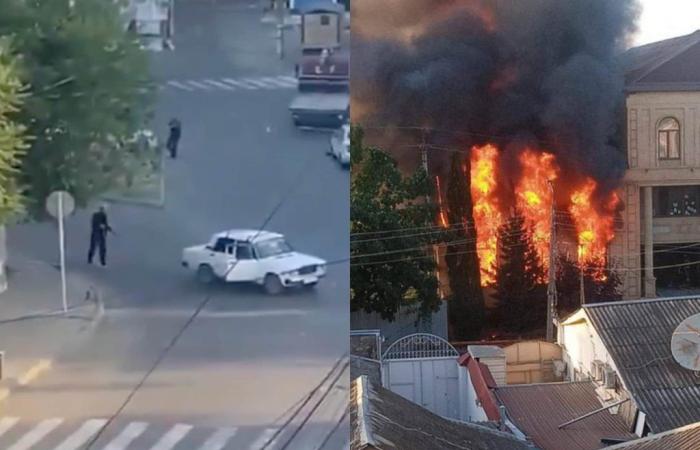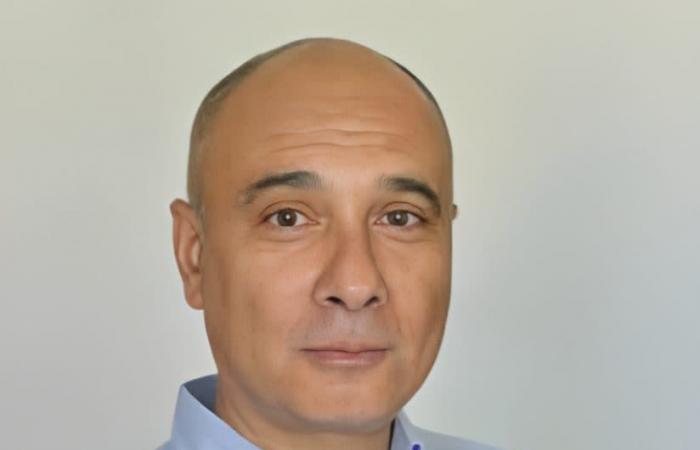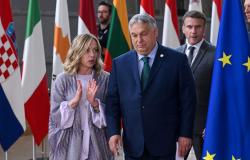Professor Aldo Ferrari, professor at Ca’ Foscari University and head of the ISPI program on Russia, the Caucasus and Central Asia, explained to Fanpage.it the possible origin of the attacks that occurred in the Russian republic of Dagestan. “Russia has had serious problems with Islamic terrorism for decades, at least since the early 2000s,” the expert noted.
Interview with Aldo Ferrari
Historian, political scientist, professor at the Ca’ Foscari University of Venice and head of the ISPI program on Russia, the Caucasus and Central Asia.
“It’s a complex situation. The attacks, which were more than one, they hit targets clearly attributable to both Russian Orthodox Church than to Judaism, so presumably the matrix should be Islamic-radical. Beyond conspiracy theories that are very difficult to support, this should be the most correct and simplest interpretation.”
So does the professor Aldo Ferrariprofessor at the Ca’ Foscari University of Venice and head of the ISPI program on Russia, the Caucasus and Central Asia, commented to Fanpage.it The attacks happened yesterday, Sunday June 23, in the Russian Republic of Dagestan, an extremely vast and multi-ethnic territory, within which at least 30 different groups coexist and dozens of different languages are spoken.
Armed men attacked two Orthodox churches, a synagogue and a police station in Derbenton the Caspian Sea, and in the capital Makhachkalakilling at least 19 people, including many police officers and a priest, and wounding at least 25. Some terrorists were also killed, local authorities report.
Natisone, still looking for Cristian: “But no news”. Bianca’s family: “What happened?”
Professor Aldo Ferrari, professor at the Ca’ Foscari University of Venice and head of the ISPI program on Russia, the Caucasus and Central Asia.
Professor Ferrari, what is behind these attacks? What is the background?
There is a lot behind these attacks. Russia has had serious problems with radical Islamic terrorism for decades, starting at least from the early 2000s. In particular, in the Caucasus which is the epicenter of these attacks. First it was Chechnya, then, after “pacification”, it became Dagestan, but also other small, predominantly Muslim republics of the North Caucasus.
Islamic terrorism has also struck other Russian cities several times, Moscow in particular. There is a rather important, serious and bloody tradition. At the same time, Russia has excellent relations with the majority of the Muslim population within it. About 15% of Russian citizens are Muslim and relations are managed positively.
It is clear, however, that when it comes to radicalized cells this is not possible and attacks of this scale and gravity occur. Many other considerations connected to the international political situation can be made but it is not certain that they are valid.
Because the situation is still very much in flux…
When it comes to terrorism, not only in Russia, it is always difficult to reconstruct the truth and the instigators. We enter a gray area that tends to remain so even after months, years, decades.
Having said this, however, the real fact is that Russia, for the umpteenth time and not far from the bloody attack in Moscow a few months ago (the terrorist attack on the Crocus City Hall in Krasnogorsk, ed), is the victim of a new very serious episode which, among other things, highlights the government’s difficulty in controlling these small radicalized Muslim minorities who strike with a certain ease in many parts of the national territory.
Can these attacks be linked to the current situation in the Middle East?
We can say that they are indirectly connected. What happens between Israelis and Palestinians can be read by Muslims all over the world, and this often happens as an attack by Jews against a Muslim people, with more or less open support from the West.
However, the fact that Russia is the West is very questionable, as we know. Furthermore, Moscow does not support Israel particularly strongly. Therefore, I would tend to read these attacks as arising from the internal Russian situation. Russia has a long struggle against Islamic radicalism behind it and has been trying to stamp it out in the Northern Caucasus for decades.
We also remember Russia’s important contribution in supporting the Syrian government against Isis and Daesh. We can say that Islamic radicals therefore have many reasons to want to attack the Federation, even regardless of what is happening in the Middle East. The attacks remain acts whose origin and reason for being are in many respects difficult to reconstruct and which can be influenced by political and ideological situations.
What repercussions will these facts have?
Substantially these attacks, which also occurred in the past, did not produce particularly significant changes in Russian internal politics.
In your opinion, what difficulty does the Russian government have in managing terrorist cells?
On the one hand, there may be the extreme vastness of Russian territory and the commitment that Russia has been directing towards Ukraine in the last two years. This obviously complicates action and investigative activities. However, we must remember that devastating attacks occur all over the world because countering terrorism is not that easy.
Especially in situations where populations are on the move and it is not easy to control every formation, every foreign group that circulates in a country. We also think that tens of millions of Muslims live in Russia who are not identified as such because they are Russian citizens and can move freely within the Federation. And, if we want, this can increase the difficulties of preventing and repressing these episodes even more.







